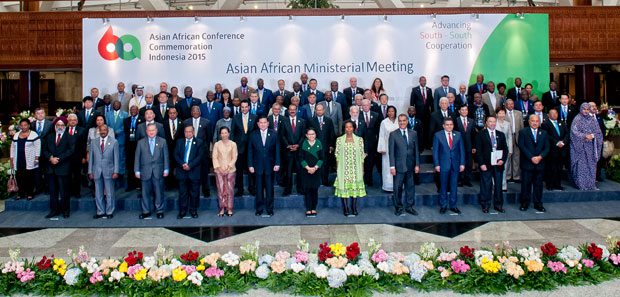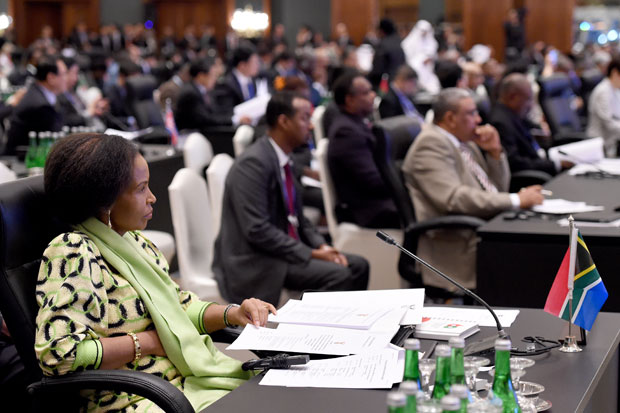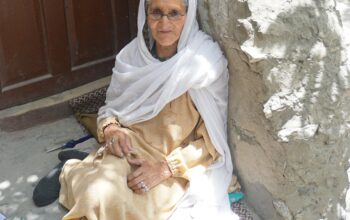Last April, heads of state, ministers, and high officials from Asia and Africa began arriving in the Indonesian cities of Jakarta and Bandung to attend a particularly significant event. The summit was held in commemoration of the 60th anniversary of the Asian-African Conference (KAA) in 1955.
The original KAA Conference was the result of an initiative by Indonesia’s 8th Prime Minister Ali Sastroamidjojo. Mr. Ali believed that a cooperation between the Asia and Africa regions is integral for development in the regions and international peace and security. The meeting, also known as the ‘Bandung Conference’, was organised by Indonesia, Burma, India, Sri Lanka, and Pakistan.
The countries that attended the Conference believed in similar ideas for development and governance, as they shared fundamental opposition against colonialism and the bipolar global politics that marked that era. This would then lead to the birth of the well-known Non-Aligned Movements. The Conference saw Asian and Afican countries share largely similar characteristics, most being newly-independent and developing countries.
Facing new challenges ahead of them, Asian and African countries believe that some form of partnership is needed to build solidarity and develop together. This partnership is based on mutual views on respect for state sovereignty and territorial integrity, equality, peaceful settlement of disputes, and respect for fundamental human rights and justice.
The KAA Conference was influenced by great Asian leaders at the time, among them the first Indonesian President Soekarno, the first Indian Prime Minister Jawaharlal Nehru, the first Burmese Prime Minister U Nu, and the former Egyptian President Gamal Abdel Nasser.
The 1955 Asian-African Conference was attended by 29 countries’ delegates, and the cooperation was followed up on the commemoration of its 50th anniversary in the 2005 Asian-African Summit.
The conclusion of the global bipolarity marking the Cold War era and the decolonisation of both Asian and African countries gave rise to concerns that this particular cooperation was losing its importance. However, Asian and African states are still facing many issues, from struggling to contain civil wars, combating security problems, fighting against poverty and pursuing economic development, to supporting proper education.
Attended by 89 heads of state and eleven more international organisation representatives, including then-UN Secretary General Kofi Annan, the 2005 Summit was key in strengthening ties between the regions.
The 2005 Summit provided a breakthrough in the development of the cooperation, as it gave birth to the New Asian–African Strategic Partnership (NAASP). Cooperation within this NAASP framework focuses on issues central to Asia and Africa’s development: counter-terrorism, food and energy security, higher education, gender equality, and the empowerment of women.
Several states from both regions champion each of these sector, and the scheme has seen Indonesia and South Africa to lead the others in promoting and delivering action plans. The quality of human resources in the regions has become the primary focus to trigger economic progress through technical cooperation and knowledge transfer.
With every year, the number of states participating in this summit increased. Representing nations comprising more than three quarters of the world’s population at 5.4 billion citizens combined, 109 countries’ delegates take part in this year’s summit.
The shared cause against colonialism and intervention was brought to the discussion by host country Indonesia, promoting the effort to support the independence of Palestine.
“An issue … merits out continued support and attention is the issue of Palestine. Indonesia remains steadfast in its unwavering support for an independent Palestine within the context of the two state solution,” Indonesia’s Foreign Affairs Minister Retno Marsudi remarked. “We should start talking about sanctions being imposed on Israel for violating international law and for negating the Palestinians basic rights.”
Another discussion of cooperation revolves around economic progress through trade. Despite it being not as significant as the trade with Europe and the Americas, direct trade between Asia and Africa is promising and expected to continue to increase. Recent trade deals have seen capital flows between the regions increase considerably. Sime Darby of Malaysia has started to develop oil palm plantations in Africa, while Zambeef of Zambia has invested in farms and husbandry, and investments in Ethiopia were made by the Indonesian company B-29.
To further cooperation, a separate meeting of the Asian-African Business Summit, bringing together CEOs from 47 countries in Asia and Africa’s leading businesses takes place at the same time in Jakarta. These business leaders are to discuss the expected improvement of business cooperation, trade, and investment in sectors of infrastructure, agribusiness, and maritime economy in particular.
The cooperation between Asia and Africa does not attract as much attention in global politics as other inter-region relationships, but is undoubtedly a much needed one. It is imperative for countries to fully support the New Asian–African Strategic Partnership built upon the Asian African Summits. Consisting of mostly developing countries, some struggling with conflict and extreme poverty, Asia and Africa need an ever-stronger solidarity in order to continue to rise and better themselves, together.
Photo credit:
Picture 1 & 2: GovernmentZA, licensed under CC BY-ND 2.0








